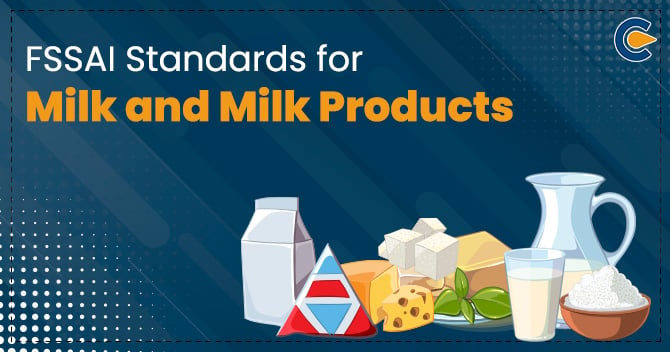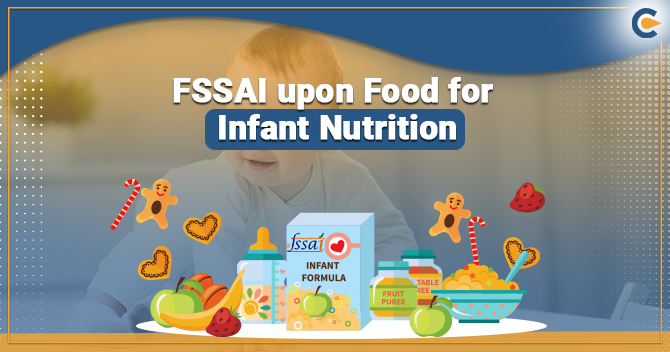In India, the majority of the population is vegetarian, and milk is an essential source of nutrition. Milk gives us calcium and proteins. The adulteration of milk & milk products and the false claiming of milk items led FSSAI to bring rules & regulations to the Indian market. In 2017-18, the per capita milk availability in India was 375 gm per day, but now the current reports say that it will increase to 592 gm daily. The Indian Government has introduced numerous standards and categories to support dairy products and has taken various initiatives. In this blog, we will discuss the FSSAI Standards for Milk and Milk Products.
Different FSSAI Standards for Milk and Milk Products
Following are some different Categories and FSSAI Standards for Milk & Milk Products in India:
- Specific Identified Milk: Milk Standards for SNF and Fat are different for species of Cow, Buffalo, Sheep, Camel, and Goat. This milk can be subjected to pasteurization, sterilization, boiling, or Ultra High- Temperature Treatment.
| species | Milk Fat Percentage (Minimum) | Milk SNF Percentage (Minimum) |
| Cow Milk | 3.2% | 8.3% |
| Buffalo Milk | 6% | 9% |
| Camel Milk | 2% | 6% |
| Sheep Milk | 3 to 3.5% | 9% |
| Goat Milk | 3 to 3.5% | 9% |
- Mixed Milk: This milk is stated to be a combination of milk through adding milk of different species as we have written above, and the standard for SNF & Fat for combined milk is 4.5% & 8.5%, respectively.
- Toned Milk, Full Cream, Standardized Milk, Skimmed Milk, and Double Toned Milk: These types of milk come under the categories of FSSAI standards for milk & milk products, and this milk is made through the combination of different animal milk like cow, buffalo, sheep, coat etc. The standards for it are given below:
| Class of Milk | Milk Fat Percentage (Minimum) | Milk SNF Percentage (Minimum) |
| Toned Milk | 3% | 8.5% |
| Double Toned Milk | 1.5% | 9% |
| Standardized Milk | 4.5% | 8.5% |
| Full Cream | 6% | 9% |
| Skimmed Milk | 0.5% | 8.7% |
- Recombined Milk: This Milk contains Milk Fat & SNF preserved forms with/without the addition of drinkable water to make similar milk items characteristics according to the FASSI Standards for milk and milk products.
- Reconstituted Milk or Milk Products: Milk resulting from the addition of potable (drinking) water to the concentrated or dried form of milk & milk products. It is the amount required to re-establish the suitable water to solids ratio to make similar end milk products.
Note: With the new categories and FSSAI Standards for Milk and Milk Products and Government involvement, the consumers can ensure that the milk and milk products are safe in the Indian markets.
Adulteration of Milk and Milk Products
Adulteration of milk is an issue that FSSAI is addressing. While some of the common contaminants like water, urea, starch (max. safe limit: 700 ppm), invert sugar and glucose. Can test at home; other adulterants requiring sophisticated instrumentation have to send to a food testing lab for evaluation. The FSSAI is serious about the issue of milk adulteration and is holistically tackling the problem.
Benefits from Milk and Milk Products
- The proven fact is that regular intake of milk and milk products strengthens the human bones.
- Being an adequate source of protein & calcium, milk, a nutrient gain fluid, provides various health benefits.
- Presence of protein in milk empowers the immune system of the human body and facilitates growth & development too.
- You may prevent several bone-related diseases by including milk and milk products in your diet.
- As milk fulfils the body’s nutritional requirements, it is necessary to have fluid.
Essential Guidelines for Milk Products Regarding Packaging Specifications
Following are some vital guidelines for FSSAI Standards for Milk and Milk Products regarding Packaging Specification:
- There are compulsory rules concerning milk and other milk products the milk and milk products must get storage in a particular room, which provides storage purposes, quickly after the packaging completion.
- FSSAI and Food regulatory agency are not directly responsible for managing the storage life of milk and milk products. Still, the Food Business Operators (FBOs)[1] in India need to come frontward & provide in-depth details regarding the storage life of milk and milk products. FSSAI events look at the safety standards and regulations regarding the production of food, and this includes milk and milk products too.
- The sealing procedure needs to continue instantly after filing and at the same time, where the last heat treatment test has taken place. Milk product sealing needs to be followed by employing a sealing tool. It must offer the guarantee that milk will remain well maintained by any unfortunate & uncomplimentary outcomes, which may have it associated with the outside origin.
- Filing & bottling of milk in the containers will be mechanically done. Moreover, the container sealing needs to be properly executed.
- We know that milk is the family’s dairy product; therefore, the already used packaging does not need to be reused for different milk items. However, there is an omission to the conditions where a similar container from following by disinfecting & cleaning.
Conclusion
FSSAI has made many milk and milk product guidelines to assist the dairy industry. Moreover, as per studies, milk production in India is expected to rise in a few years.
Read our Article:How to Obtain Food License for Milk Chilling Units?











